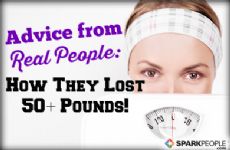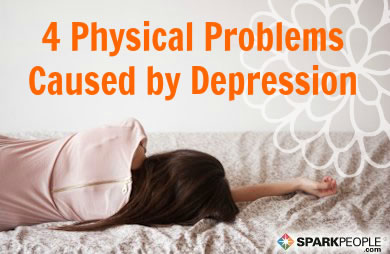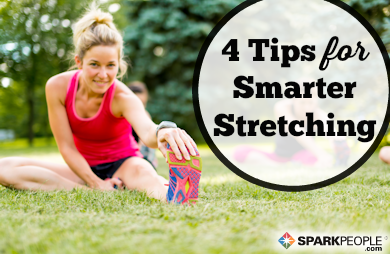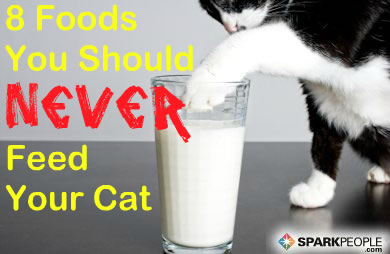|
Losing weight can be a true test of patience. It's not easy to cut back on eating so many of the foods you love, and it can be challenging to find the time and energy to devote to a regular exercise routine. You put in so much hard work that you expect the reward to be progress on the scale. When the scale isn't moving quite as fast as you'd hoped, though, it's tempting to look outside of just diet and exercise to find ways to speed up the process. Water loss is one of those alternative prescriptions for those seeking quick results on the scale. Like the fighter exercising in a sauna suit before a weigh-in, sweating can help with temporary weight loss. The plastic suit acts as an insulator, increasing body temperature which increases sweat production. But is it a long-term solution to your weight-loss woes? Do products that promote sweating and turn up the heat really help keep those pounds off for good? These four items tout weight-loss claims, so let's find out if they really deliver and are even safe to try.Can You Sweat Your Way to Skinny?1. Spicy Foods Adding hot peppers to your diet isn't going to melt away the pounds, but it could give your metabolism a small boost if combined with a healthy diet and regular exercise. In one study from Purdue University, adding small quantities of red pepper to subjects' diets resulted in a decreased appetite, especially for sweet, salty and fatty foods. Although this can be a simple way to get a minimal calorie burn increase, there are a few words of caution to keep in mind:
2. "Hot" Workouts If you've ever gone for a walk or run on a hot day, you know the workout feels more difficult than the same workout on day with milder temperatures. Does that mean you're burning more fat and calories? Not necessarily. It's very likely that you have to decrease the intensity and/or duration of your workout in the heat because of the added strain it puts on your body. While your body is working harder to send extra blood to the surface of the skin to keep you cool, the calorie burn from this is minimal. Hot yoga classes like Bikram have a reputation for being serious calorie-torchers, but research shows the actual calories burned might not be as high as first thought. While some report burning as many as 1,000 calories during a typical class, the actual burn is closer to 330 for women and 460 for men. Keep in mind that an increase in heart rate and sweating from an increased room temperature does not equal increased calories burned. Your best bet is to stick with a workout in comfortable temperatures. If you are going to exercise in the heat, be sure to stay hydrated before, during and after class, and adjust the intensity of your workout as necessary. 3. Sweet Sweat and Other Workout- Enhancing Products The premise behind Sweet Sweat is that it "[…] accelerates and enhances circulation and sweating during your workout. It takes energy to sweat, more energy than most people might think. And like all energy consuming processes, sweating helps burn calories." Read the reviews on this product and you might be convinced it's the answer to all of your weight-loss problems. Consumers report increased sweating in the areas where it is applied, which is the intent. The issue is the statement that "sweating helps burn calories." This is not true. Sweating is your body's way of cooling itself, not an indicator of how hard you're working. It's based on a number of factors, including gender, size and fitness level. Just because you feel hotter does not mean you're burning more calories. Products like this aren't likely to hurt anything except your wallet, but they won't result in sustainable weight loss. 4. Saunas After a tough workout at the gym, a short session in the sauna can be a great way to relax and increase circulation, which can reduce muscle soreness and joint pain. In one study, participants who regularly spent time in a sauna also improved their heart health. But is a sauna going to help you lose weight? Only until you drink that next glass of water. There is no research to support the idea that saunas help shed pounds. Although they are safe for most people, heart patients should check with their doctor before using the sauna. Also, be aware of the risk of overheating and dehydration if used for too long, especially after an intense workout. When it comes to weight loss, it is important to recognize the difference between fat loss and water loss. Both will show up as decreases on the scale, but unless you're trying to make weight for your next UFC fight, water weight isn't important. When you lose water weight through sweating, it is not related to how many calories you're consuming or expending. You might see a big drop on the scale after a sweaty workout, but as soon as you rehydrate, that weight will come right back. That doesn't mean that there isn't value in a good sweat session. While sweating is mostly water weight in terms of direct weight loss, there is emerging evidence that sweating does have many other types of health benefits. Fat loss is what really matters when it comes to permanent weight loss. The way to lose fat is to burn more calories than you consume, either through dietary changes, exercise or, ideally, a combination of the two. Even if your diet is perfect and you're exercising regularly, some of the weight you lose will still come from water and even muscle. There's no way to eliminate that completely, but the goal is to maximize fat loss as much as possible. This happens when you're losing weight slowly with a healthy and balanced diet, as well as incorporating both cardio and strength training into your exercise routine—no sweat-promoting methods needed. Have you tried any of these methods or products to lose weight? How did they work for you? |
Popular EntriesMore From SparkPeople
|



.jpg)

















